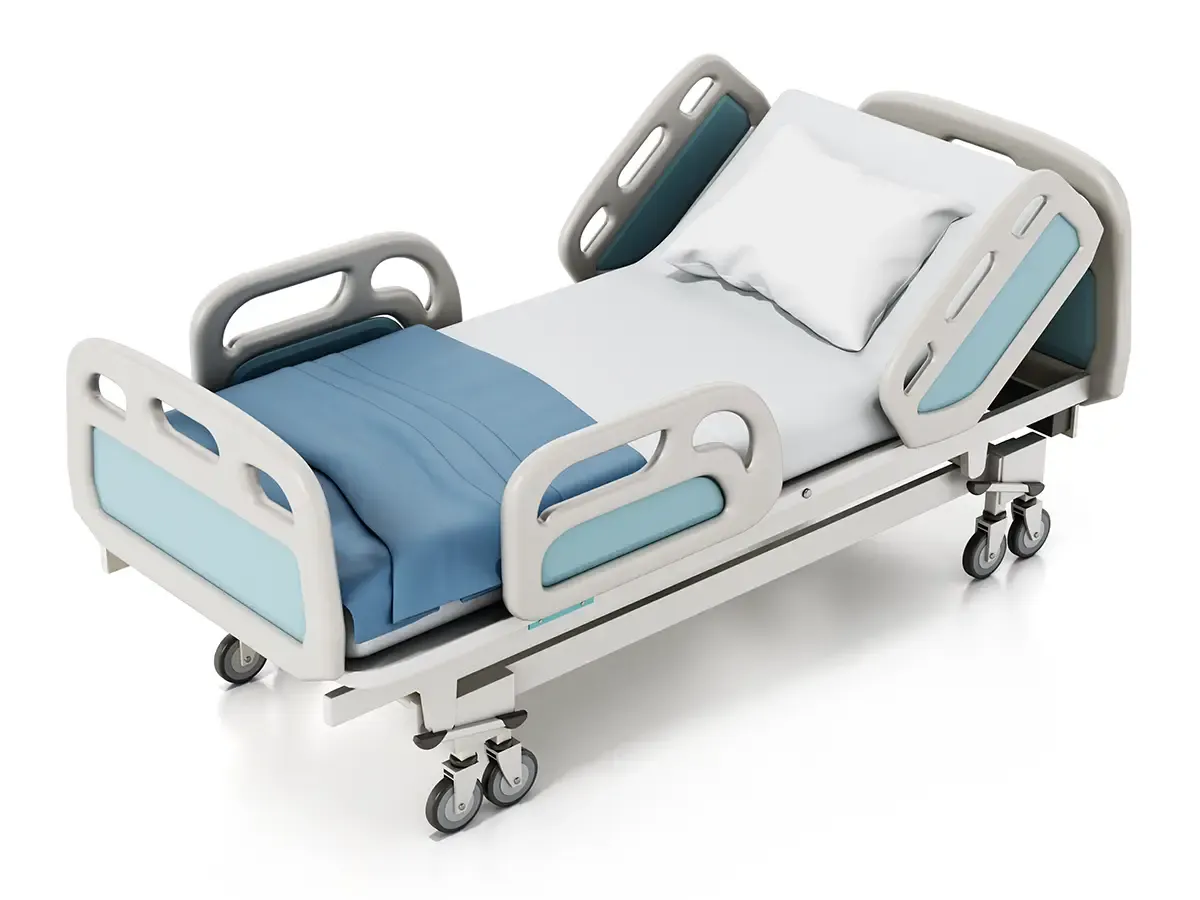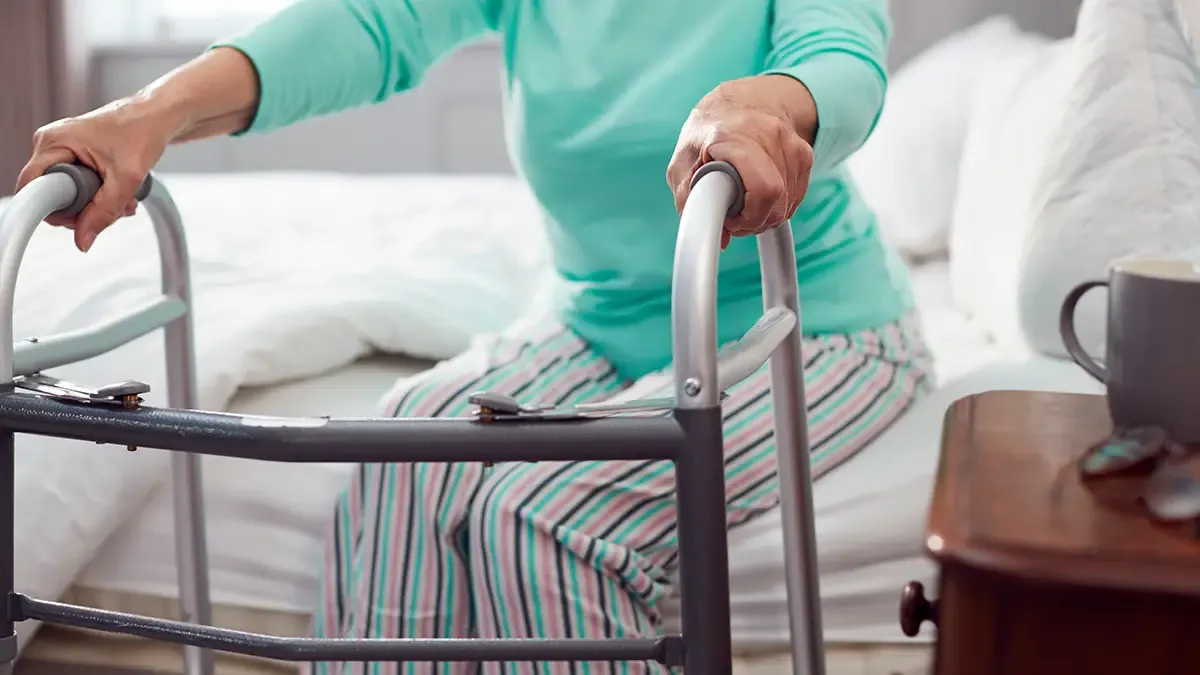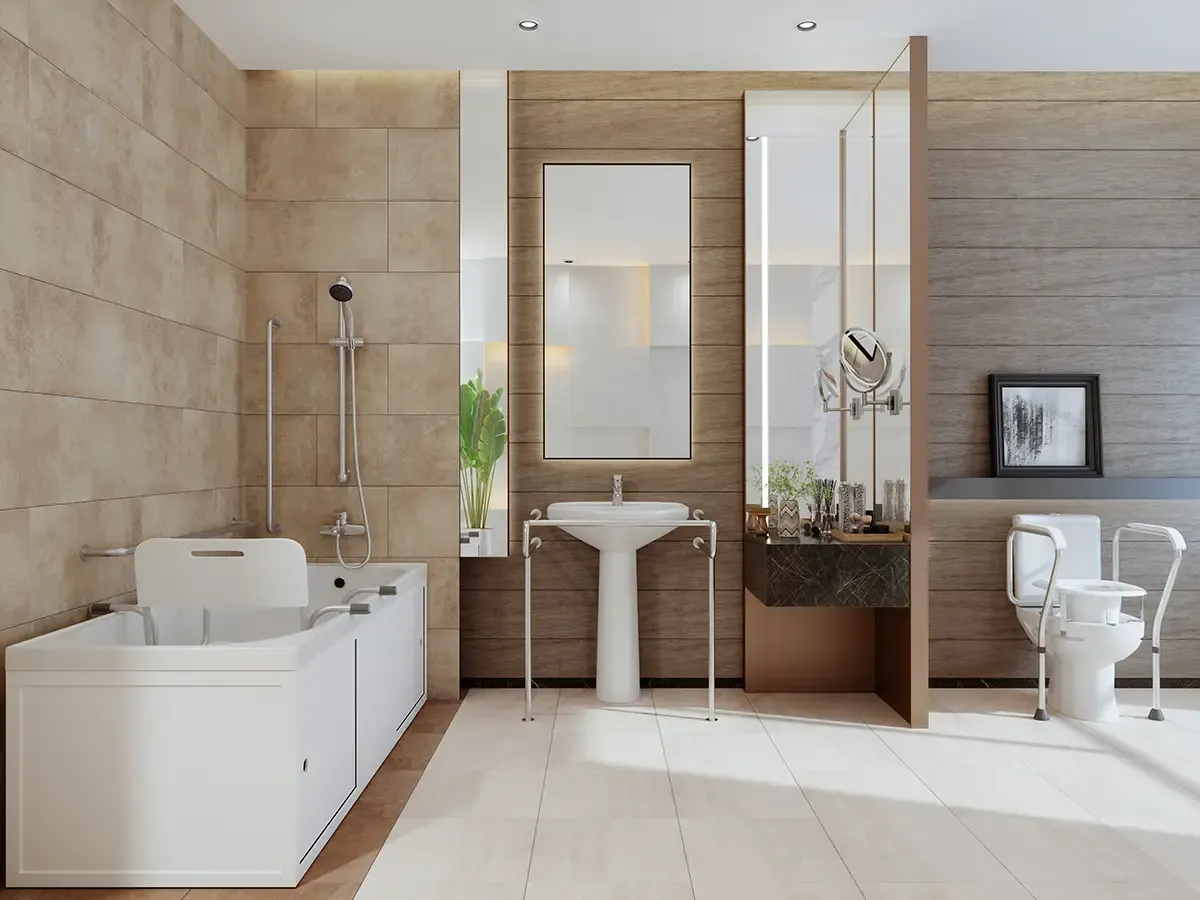
It is a common misnomer that palliative care is only for people who are close to death.
This is not the case. Palliative care specialises in caring for those diagnosed with a life limiting illness. Even if you are receiving treatment for mesothelioma, you can still benefit from palliative care services. Palliative care is all about improving your quality of life and supporting you to live as fully as you are able.
There is a lot of equipment available to borrow, hire or buy that can make living at home as the disease progresses easier for you and your care team. This includes toilet raiser, over toilet chairs, rails, commodes, shower chairs, grabbers, ramps, beds and chairs.
Your state government may have a Community aids and equipment program (CAEP), providing equipment and home modification for those with long-term health or disability conditions, who are living at home.


Occupational Therapists (OT's) are available to help you decide on the best equipment for your needs and to ensure they are adjusted to your body type and environment.
An inpatient hospital stay within 3 months provides access to the hospital OT service, who may come to your home and complete a thorough assessment. Equipment can be made available through Hospice at Home, Silver Chain, private providers or NDIS funding (for those under 65 years of age).
Many people feel reluctant to have specialist equipment in their home. It can be unsightly and a daily reminder that the illness will progress.
Some people worry about becoming dependent on equipment, or it causing further stress when learning how to use, store and look after it.
On the upside, equipment does help to preserve autonomous living. It helps simple tasks feel less exhausting and creates a safer environment for you and your family, preserving energy for the lighter things in life.

Having a height adjustable bed is very useful as disease progresses. It helps to conserve energy and adjustable back rests makes sleeping more comfortable and effective. Many families adapt a living space to make space for a bed ensuring everyone gets some sleep. Electric beds with height, head and feet raising capabilities can make breathing easier, reduce swelling and help with repositioning and make bed changes easier.
Privately purchased beds can be designed to suit your home décor and even built within an existing frame. Independent king single beds within a king-size frame means that couples can continue to share the same bed but tailor mattresses and bed positions to their own comfort and needs.
An electrically powered chair prevents difficulties encountered with seating on traditionally lower sofas. Chairs are height adjustable making getting in and out easier, and often recline into comfortable sleeping positions. Otherwise, a height adjustable high-backed chair is a good alternative.
Wheelchairs will eventually become part of your new normal. Electric wheelchairs can provide a higher level of independence and can still be pushed by carers as needed. Modern chairs can be folded to stow in the car or out of the way at home. Oxygen bottle can also be hooked onto the back as needed. Being able to get out of the house without worrying if your energy will meet the occasion makes a big difference to everyone.
Download and print the application form for a disabled parking permit.Take the completed form to your doctor or Occupational Therapist for them to sign and then post/email your application for review by ACROD. As your condition will deteriorate, it is best to anticipate your future needs, not your best day scenario.
Palliative care is multidisciplinary which means that there is a team approach to supporting your needs and desires. A team will often include specialist doctors, pain specialists, nurses, physiotherapists, occupational therapists, social workers, speech therapists, counsellors, dieticians and spiritual/cultural care workers. They will work with you to keep you living as actively as possible. Responding quickly to changing circumstances and providing the support and equipment needed.
Palliative care is usually able to provide care around the clock in your own home in addition to hospital and hospice. After an initial meeting with the Palliative Care Coordinator, the necessary team members will coordinate with you to visit in your own home and to provide care, support and necessary equipment. Palliative care services can also arrange respite care for carers.
Palliative care supports living your life in the best way possible for you. You will find their approach more relaxed, less rushed and entirely focused on your needs. Early involvement with Palliative care can mean greater comfort and ease for you and your loved ones.
Your oncologist or GP may refer you to the Palliative Care team at the hospital. Silver Chain provide hospice at home services. In WA, there are different providers in each state. If you live in WA, you can explore the palliative services available here:


Website designed by c4 Digital Agency